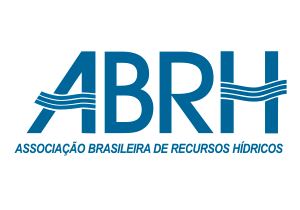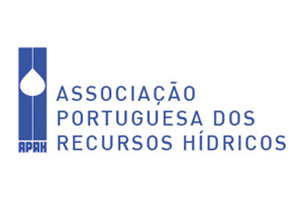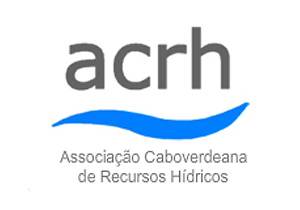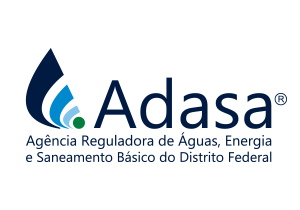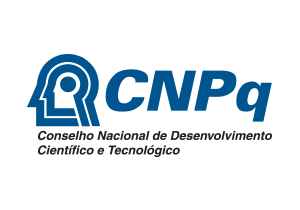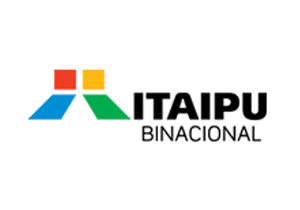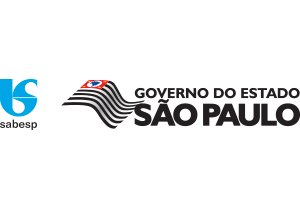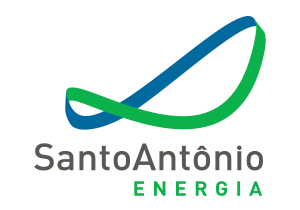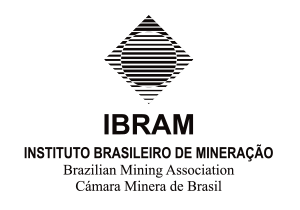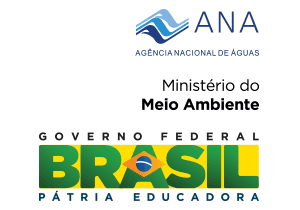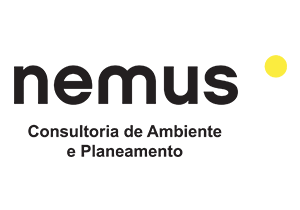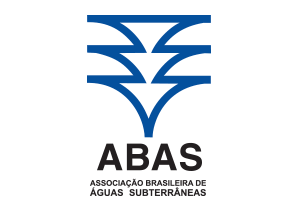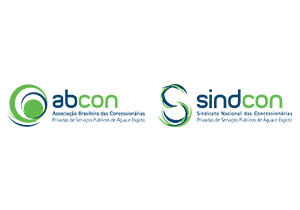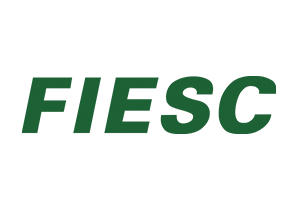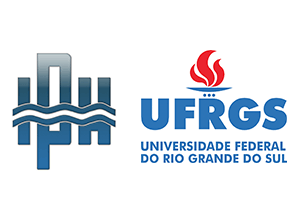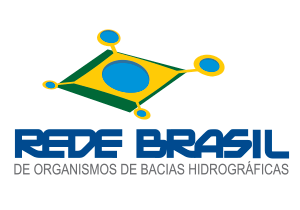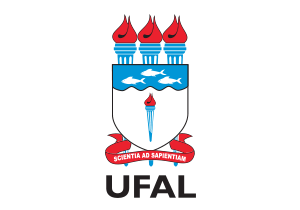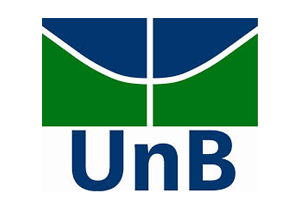Round tables
Share:
November 23
RT 1 - Reflections on the 18 years of the National Water Resources Management System
JUSTIFICATION /OBJECTIVES
Besides having approximately 12% of the fresh water available on the Planet, Brazil, already at the end of the last century enacted Law no 9,433/1997 which is based on modern, internationally widely accepted principles, and used decentralized management mechanisms, with the participation of the River Basin Committees, an important forum to identify local problems and find solutions based on the demands of the population.
Despite this legislative and operational framework, the intense drought that occurred in the Northeast in the last few years, together with the recent water crisis in the Southeast sounded a nationwide alarm regarding the availability of water in the near future, and alerted authorities and public policy makers. In this context, the topic of water and the entire regulatory system that guides its management became a major issue on the national agenda and was the subject of a broad debate sponsored by the Center of Studies and Strategic Debates of the Federal House of Representatives (CEDES -Centro de Estudos e Debates Estratégicos da Câmara dos Deputados), resulting in the publication Instrumentos de Gestão das Águas (Water Management Instruments).
The objective of this round table is, based on the result of the study sponsored by CEDES, to promote a debate on the effectiveness of the water management actions developed in Brazil in the last 18 years.
TITLE OF ROUND TABLE 03
The management of transboundary basins and shared waters
OBJECTIVE
Debating the most important current challenges in the field of management of shared waters and management of water resources in transboundary river basins, using the experiences on the subject in South America and Europe as reference, the socioenvironmental conflicts that occurred, the national legislations adopted, and also social participation in water management and conflict-solving .
Challenges to be discussed in the form of overviews of outcomes and case reports:
- Planning and Territorial Organization, including issuing licenses for activities with an impact on the water resources, that affect transboundary river basins and shared waters;
- National legislation on shared waters.
- Socioenvironmental conflict management, social participation and water rights
- Integration of water resources policies and foreign policy of countries with shared borders.
RT 2 - Urban Waters, Resilience And Sustainable Development
Context
The capacity of Brazilian cities to adapt to changes in land use and occupancy, population growth, climate variability and natural disasters requires a joint effort by the players involved to integrate knowledge and improve risk management, including aspects involving governance, public policies and scientific knowledge.
1. Water Resource Plans have been a failure and it is necessary to discuss their problems and what should be done to improve them, such as: a) the plans do not assess water safety (extremes); (b) the plans do not have goals and financial resources to achieve the goals (which also do not appear in the plans) over the short, medium and long term, and especially, they do not have any follow up with development of the urban(sanitation), rural and other sectors.
2. Urban sustainable development, of which water services are part, is a major framework to improve the conditions under which 86% of the population lives. The integrated evaluation and urban recovery with infrastructure, amenities and environment, allow increasing business and income. A question: Do you know any Brazilian city whose urban rivers are not contaminated? Is this not a failure in sanitation? How can this be changed and improve peoples’ lives.
Objectives: to debate the challenges to seeking resilient cities:
- Phases of urban recovery and sustainable cities, integrating water resource management, urban territory and the environment.
- The cities’ capacity to react when natural disasters occur: Contingency Plans (instrumentalizing the cities to deal with adverse situations involving water availability), warning systems, control of urban impacts, etc.
- Resilience of Brazilian cities to natural disasters in the light of the Hyogo Actions (action of civil defense)
- The technical-institutional capacity (including the academic formation of the professionals).
- Urban waters in the context of water resources management (basin plans and sanitation plans)
- Environmental health and resilient cities: impact of environmental and climate changes on the health of the urban population, particularly in the case of waterborne diseases. Environmental indicators and prevention of disease through healthy environments.
- The appropriation of academic knowledge by the technical-institutional environment (municipality).
RT 3 - The management of transboundary basins and shared waters
Objetivo
Debater os desafios atuais de maior destaque no campo da gestão de águas compartilhadas e gestão de recursos hídricos em bacias hidrográficas transfronteiriças, considerando a abordagem geográfica de territórios e a geopolítica das bacias transfronteiriças, tendo como referência as experiências na América do Sul e Europa sobre o assunto, os conflitos socioambientais vivenciados, as legislações nacionais adotadas, bem como a participação social na gestão das águas e resolução de conflitos.
Desafios a Serem Abordados:
- Planejamento e Ordenamento territorial, incluindo licenciamento de atividades impactantes nos recursos hídricos, com impacto em bacias hidrográficas transfronteiriças e águas compartilhadas;
- Legislação nacional sobre águas compartilhadas.
- Gestão de conflitos socioambientais, participação social e direito à água
- Integração de políticas de recursos hídricos e política externa dos países com fronteiras compartilhadas.
November 24
RT 4 - What to do with the lessons learned from the water crises?
OBJECTIVE
Significant parts of the Brazilian territory have faced situations of intense, prolonged droughts in recent years, including regions where the population is highly concentrated. The Brazilian Northeast, for instance, has had years with a rainfall below normal since 2012, although the drought is a characteristic inherent to the semiarid, while the Southeast region has been facing the problem of the most intense scarcity in its history, with problems that are really a result of the circumstances. This situation revealed weaknesses of the water management system in dealing with this phenomenon. The present round table aims to reflect on the situation of current water scarcity from the perspective of the National Water Resources Management System (SINGREH - Sistema Nacional do Gerenciamento dos Recursos Hídricos). It is essential to understand the current weaknesses to be able to construct a more resilient system for the future. It is certain that these situations have provided great lessons, especially in issues regarding the need for articulation among those involved. What can we leverage with these lessons? How can we incorporate what we have learned into the everyday work of governance?
Challenges:
- To understand and discuss the aspects of water scarcity in the NE and SE
- Institutional aspects of management during periods of scarcity
- Drought plans from the viewpoint of SINGREH
- Incorporation of lessons learned from the water crises in governance
RT 5 - Water and energy: reliability, safety and investments in the electricity sector
OBJECTIVE
Many countries are facing a large crisis as many of the main infrastructure systems reach the end of their lifetime. Large investments will be necessary in the coming years to renew and update the essential assets of infrastructure, such as dams and power generation, transmission and distribution, among others that are especially important in countries such as Brazil and Canada. The technological advances during the last few decades increased the complexity of these civil integrated infrastructure systems. As a result, management and maintenance of these systems are becoming increasingly important and critical in relation to the age and lifetime of these systems. System performance and reliability is the result of the interdependences between engineering, natural components and users of the systems. Traditional analysis of engineering risks tends to concentrate on extreme events that have a low probability, and thus, have very little to contribute to the general reliability. There is a widely acknowledged need to promote and use modeling of integrated systems to achieve a better understanding of the response to a variety of loads, demands and operational decisions that occur within and outside the project criteria adopted. This table/plenary aims at presenting the Brazilian experience of dam safety and the advances since the enactment of Law nº 12,334, of September 20, 2010, which establishes the National Policy of Dam Safety and the National System of Information about Dam Safety, and also at presenting a methodology of risk analysis using systematic analysis, applied to a set of dams and electrical energy generation systems in the province of British Columbia, Canada –BC Hydro.
Challenges to be discussed in the form of expositive talks, case reports and discussion:
- Systematic view on the safety of complex systems for energy generation and distribution
- Management and Risks in Dam safety
- Advances, difficulties, effectiveness and challenges of the Laws of Dam Safety in Brazil.
- Discussion on the issue of aging and adaptation of structures.
November 25
RT 7 - Contributions of territorial organization to water safety
Integrated territorial and water management will focus on the conceptual and practical challenges for its implementation, Although its importance has been recognized since the long ago Dublin conference and ratified at many national and international conferences, integrated-water-soil management is very timid regarding operationality and implementation, which results in degradation of the quality of aquatic ecosystems, reduction of water availability, increased costs of water treatment for sanitation companies, social and economic losses in urban flood events, and many other problems. At this Round Table, the legal delimitations of integrated water and territory management will be discussed together with institutional limitations. However, the successful initiatives of water and territorial management integration will also be highlighted based on the implementation of management instruments (environmental or water resources) and the use of new technologies and new approaches to model diffuse pollution.
The emphasis in the debate will be motivated by the talks of the following speakers and respective topics:
- Legal instruments for the integration of territorial and water resources management: reports on experiences and difficulties encountered in implementation;
- Urban planning and water: the relationship between water management and human settlements, housing programs and real estate enterprises;
- Diffuse pollution: gaps in knowledge (pollutant transport in soil, integration of surface water and groundwater, sediments, issues of scale in modeling), and possibilities of a solution based on integrated territorial and water resources management;
- Technologies to capture information needed to integrate territorial and water resources management (modeling, geotechnologies, vants, SR, etc).
November 26
RT 10 - Avoiding crises, planning for the future. The role of plans
OBJECTIVE
To discuss the current challenges to integrated planning of water resources aiming to ensure sustainable development with water safety and defense against critical hydrological events, in climate change scenarios.
Challenges to be discussed in the form of overviews of outcomes and case reports:
- Integration among the different water resources plans (National, States and basin) and of the other existing plans, programs, projects and studies related to environmental management, user sectors (power generation, agribusiness, cities, industry, mining, etc), to regional development, to land use, to the management of estuarine systems and coastal zones that occur within the area covered by the respective river basins.
- Water Safety;
- Adaptation to Climate Changes;
- Observation of Water Safety (health sector) and Dam Safety;
- Definition of aims and indicators and following up the implementation of plans;
- Resources (total or only of those over which there is governability);
- Instances of follow- up of the elaboration and implementation when there are no Committees;:
- Review of plans (periodicity)
- Participation of society in elaborating the plans;
- Use of integrated environmental assessment
RT 11 - Multiple Uses of Water in times of Crisis
OBJECTIVE
In its basic principles, the National Water Resources Policy says that: (i) in situations of scarcity, the priority for the use of water resources is human consumption and watering the animals; and (ii) water resources management must always provide the multiple use of water. Increased population and consumption patterns as well as variations in hydrological behavior observed in several regions of the country, in recent years, have led to situations of stress, conflict, or even water crisis, involving different sectors of society. Thus, the main objective of this Round Table is to bring to the fore the view of different sectors regarding the way in which multiple water use issues have been handled in these critical times, and what are the proposals of each sector to enable multiple water uses and help build sustainable development.
Challenges to be discussed:
- Supply sector: What is the real situation of the reservoirs? How are the forecasts? Where are the most obvious conflicts? To what extent is the climate to blame? How much are the other sectors to blame? Articulation with the other sectors? In what kind of atmosphere have the articulations taken place? What are the possible solutions to minimize the crisis? Reuse? Losses? Would PES or similar actions help? View of the Water Resources Management System – Committees, Councils, Managing bodies? What actions have been taken in recent years, and what is to be expected going forward? How can the present situation be improved? Solutions?
- Energy sector: What is the real situation of the reservoirs? How are the forecasts? Where are the most obvious conflicts? To what extent is the climate to blame? And the articulations between the sectors – cascade and interconnected system? Articulation with the other sectors? In what kind of atmosphere have the articulations taken place? What are the possible solutions to minimize the crisis? Would PES and other similar actions help? View of the Water Resources Management System – Committees, Councils, Managing bodies? What actions have been taken in recent years, and what is to be expected going forward? How can the present situation be improved? Solutions?
- Industrial sector: How has the crisis affected the sector? Has there been planning for expansion? Where are the conflicts most obvious? Articulation with the other sectors: In what environment have the articulations/discussions taken place? What are the possible solutions to minimize the crisis? What happens to the issues of Licenses and Inspections? Have resources from charging helped? Would actions such as PES or similar ones help? Reuse? Water footprint? Life Cycle Analysis? View of the Water Resources Management System - Committees, Councils, Managing bodies: What has been done is recent years, and what is to be expected going forward? How can the present situation be improved? Solutions?
- Agricultural sector: In given basins the pumps are being sealed. What does this mean for the sector? What has it meant that, globally, it is responsible for 70% of the water consumed worldwide? And the values that are presented for Water footprints? How is the integration with the supply sector (priority)? And the hydroelectricity (do they need energy)? Experience of PES among the sectors? How is the planning going for expansion of irrigated agriculture? Rational use of water in agriculture? Good Practices? How has the climate interfered in the sector for the last few years? View of the Water Resources Management System- Committees, Councils, Managing bodies? Solutions?
- Water Resources Management Bodies? What is being done by these bodies in a crisis environment? How have they promoted articulation among the sectors? What happens with issues regarding Licenses and Inspections? Have the resources from charging helped? Examples?
- Basin Committee: Are these topics being taken to the River Basin Committees(RBC) or to the Water Resources Councils? Are the decisions of the RBCs being taken into account? Are the Plans being followed? Have the resources from charging helped: Examples?



